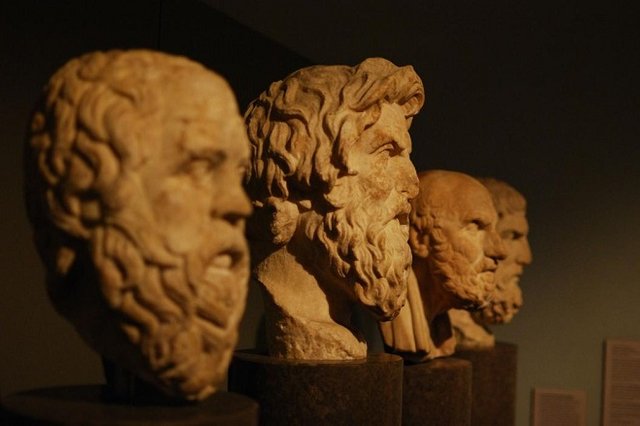Supernatural truth and cognitive process /part 3/
The second direction views philosophy and religion as necessary consequences in the development of the human spirit, which in themselves have no different content, but they are only different forms and degrees in which the common Reason operating in each individual consciousness unfolds. The first of these forms manifests itself in the concepts and feelings and is expressed through symbols - that is religion. The second form is speculative, evolving along the path of logic. It is a product of prudent reason and is called philosophy. Philosophy and religion, therefore, are the same thing that appeared in the historical process in various forms. These are in a most conspicuous form expressed Hegel's positions.
What views support contemporary religious thinking?
The most prominent representative of Protestant theology in the first half of this century, K. Barth proclaims "The Absolute God's Beyond". The categories expressing God's essence, he teaches, differ radically from concepts reflecting the norms of material reality. No human assessment can match the Divine. No data and results of the cognitive process, no theology, philosophy, and human ethics can match God's ideas. Man has no way to God, he can not cross the gap between the divine and the human. Without exception, all human explanations about the nature of Absolute, and attempts to make judgments about God's works in light of human criteria, are condemned to failure. Every time, as K. Barth thinks, when a person tries to define and describe God through his own concepts and concepts, he always faces fictions, with anthropomorphic idols and deities, with illusory notions of God. Very often, the individual man unjustifiably projected his hypostated traits and qualities in the sphere of the Divine, which has been the subject of criticism, for example by Ludwig Feerbach. At the same time, K. Bart strongly opposes any "theology of analogies", which tries to explain God's essence with the means of logic, and resorts to comparisons with natural phenomena, man's structure and his relationships in society. Traditional Roman Catholic Theology overlapping this principle is totally unacceptable to K. Bart, as well as the so-called "liberal theology" in Protestantism, which as pelagianism raises the dogmas of faith rationally or reduces religion solely to religious feelings and experiences. "The Liberal Theology" from Schleimherher to Rich and Thröchl, serving with the theoretical-cognitive methods of philosophy, psychology, and history, is no more than a "theory of religion."
Such a theology, even if it is a manifestation of truly religious piety, says K. Bart, is a human affair, and in no case is the expression of the true voice of God. But if the "theology of analogies" is not valid, and if the methods of philosophical research and of historiography are inapplicable to the truths of the Revelation, how is it possible in the theoretical-cognitive plan to contact the "Jenseitigkeit" and Earth reality when the principles of these two qualitatively different spheres of being are so alien to one another? The only possible interrelation between them - says K. Bart - can not be realized in the form of antithesis and conflict, which in a cognitive aspect have their respective expression in paradox and contradiction. The founder of dialectical theology perceives the basic concept that the actual content of Christianity should be a critique of every externally applied human element in religion; it should not be the confirmation of the logical in the world, but its denial. Faith can not be given as mathematical or historical knowledge but as a conflict in human consciousness. For example, the meaning of supernatural truths, formulated as dogmatic doctrine, is not in themselves, but in the conflicts they cause in the most profound essence of man. Dogmas are answers to questions, and they make sense where man puts down certain problems for the ultimate goals of his existence.
And man finds the meaning of his life only when he reveals his nonsense. True faith grows over the ruins of logical categories on the crisis moments of helplessness and disappointment. But God is the essence that unites in itself all contradictions, and only His grace makes salvation possible through the miracle of the illogical. God's logic is by no means human logic. The system of supernatural truths is not a supreme refinement of human cognitive aspirations, as Tomism considers, but their rejection and negation.

Agree, how can explain something that is "divine" in a mortal words, something that each person has a different perspective. Great post. 👍